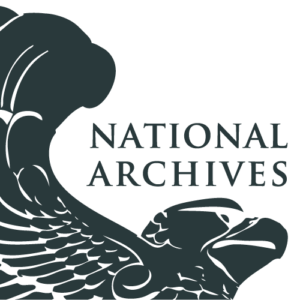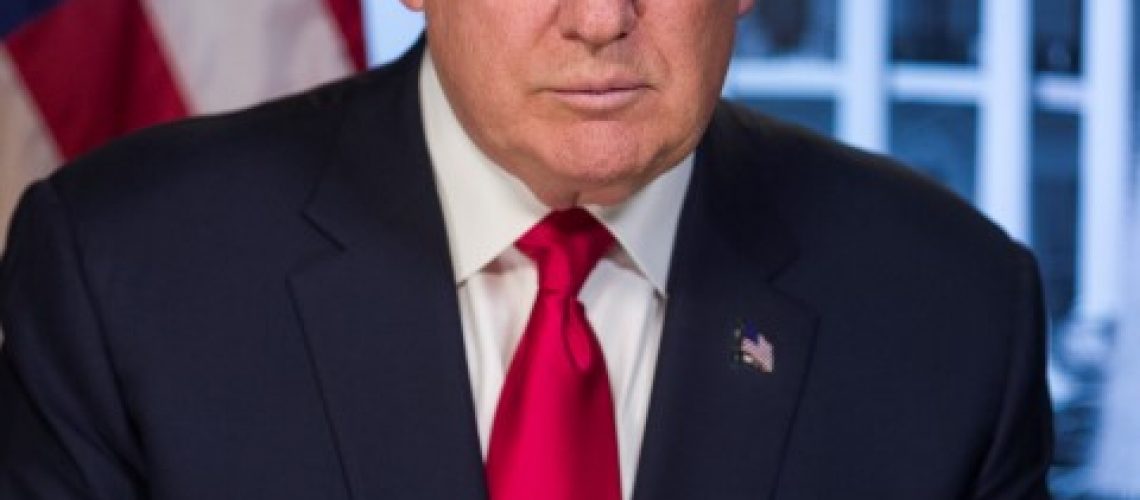President Trump on April 26 announced that some documents related to the 1963 assassination of President John F. Kennedy would be released in coordination with his schedule and others would be delayed until at least 2021 for what he called “national security” reasons.
The White House announcement provided few details but a separate one by the National Archives and Records Administration (NARA) stated that some 19,000 documents would be released. On April 26, several noted JFK research experts were privately commenting that the announcements were confusing and aggravating for researchers because, much like in the past, the Trump administration did not make readily apparent which documents had been released previously at least in part.
To provide a prompt alert to this breaking news, we excerpt below the NARA announcement and several news stories below in reverse chronological order, beginning with April 26.
April 26
 National Archives and Records Administration (NARA), New Group of JFK Assassination Documents Available to the Public, Staff report, April 26, 2018. In accordance with President Trump’s direction on October 26, 2017, the National Archives today posted 19,045 documents subject to the President John F. Kennedy Assassination Records Collection Act of 1992 (JFK Act). Released documents are available for download. he versions released today were processed by agencies in accordance with the President’s direction that agency heads be extremely circumspect in recommending any further postponement.
National Archives and Records Administration (NARA), New Group of JFK Assassination Documents Available to the Public, Staff report, April 26, 2018. In accordance with President Trump’s direction on October 26, 2017, the National Archives today posted 19,045 documents subject to the President John F. Kennedy Assassination Records Collection Act of 1992 (JFK Act). Released documents are available for download. he versions released today were processed by agencies in accordance with the President’s direction that agency heads be extremely circumspect in recommending any further postponement.
The John F. Kennedy Assassination Records Collection, established by the National Archives in November 1992, consists of approximately five million pages. The vast majority of the collection has been publicly available without any restrictions since the late 1990s.
As permitted by the JFK Act, agencies appealed to the President to continue postponement of certain information beyond October 26, 2017. The President provided agencies with a temporary certification until April 26, 2018 to allow for a re-review of all documents withheld in full or in part under section 5 of the JFK Act and directed agencies to “identify as much as possible that may be publicly disclosed” and to be “extremely circumspect in recommending any further postponement.”
Based on reviews conducted by agencies in accordance with the President’s direction, the National Archives released 3,539 documents on Dec. 15, 10,744 documents on Nov. 17, 13,213 documents on Nov. 9, and 676 documents on Nov. 3 of last year. The 19,045 documents released today represent the final release of documents in accordance with the President’s direction on October 26, 2017.
All documents subject to section 5 of the JFK Act have been released in full or in part. No documents subject to section 5 of the JFK Act remain withheld in full. The President has determined that all information that remains withheld under section 5 must be reviewed again before October 26, 2021 to determine whether continued withholding from disclosure is necessary.
Washington Post, Trump delays release of some JFK files until 2021, bowing to national security concerns, Ian Shapira, April 26, 2018. After President Trump vowed last year to release all the long secret files related to the JFK assassination, the administration announced Thursday that some documents will be withheld until October 2021 for national security reasons.
In a White House memo, Trump said that the nation’s intelligence community persuaded him to keep some documents secret because their exposure could harm “identifiable national security, law enforcement, and foreign affairs concerns.”
Trump gave the CIA, FBI and other agencies a deadline of April 24 to release the last remaining documents related to the investigation into President Kennedy’s assassination by Lee Harvey Oswald on Nov. 22, 1963 in Dallas. Last year Trump, who once suggested Sen. Ted Cruz’s father played a role in the assassination, promised he was going to release the entirety of the five million pages of records, most of which have been available since the late 1990s.
As of Thursday morning, it was unclear exactly how many records are being kept secret. The President did authorize the disclosure of 19,045 documents that are available on the National Archives web site.
Trump said the next deadline for release of more documents would be Oct. 26, 2021.
“The need for continued protection can only grow weaker with the passage of time from this congressional finding,” Trump wrote.
Rex Bradford, president of the Mary Ferrell Foundation, which tracks the JFK files, said he wasn’t sure yet what had been withheld and needed to spend time scrutinizing the latest release of documents to see whether they contain a large or small amount of redactions. He said he did a quick “spot-check” Thursday morning and was surprised to see fewer whited-out sections than in previous releases.
“I checked a few dozen files and there were certainly many with redactions, but they tended to be names and short phrases,” Bradford said.
April 25
JFK Facts.org, Will Trump release all of the JFK files tomorrow? Jefferson Morley, April 25, 2018. Jesse Walker, author of United States of Paranoia, hedges his bets: “I know better than to try to predict the behavior of Donald Trump. All I’ll say is that I hope some advocate of government transparency can get booked on ‘Fox and Friends’ that morning.”
WhoWhatWhy, JFK Assassination: The Tell-Tale Brain, Milicent Cranor, April 25, 2018. Keeps on Telling — What Is It Saying? Researchers are now analyzing newly released documents concerning the assassination of President John F. Kennedy, but many extraordinary facts have been in plain sight for decades — and yet unseen. This report concerns one of those facts, and how, to this day, the story around it is being concealed.
Within minutes of Kennedy’s murder, witnesses were pointing at areas where they said they heard shots — and many pointed to a place in front of Kennedy. But, according to the official version of events, there was only one shooter, and he fired from behind. What did the body show? What did the autopsy report say?
More interesting is what it did not say. Autopsy reports are supposed to contain all information relevant to the cause of an individual’s death — as well as those details that are not related to the death. As Dr. Alan R. Moritz put it in the American Journal of Clinical Pathology in 1956: “In the protocol of a medico-legal autopsy, it is better to describe 10 findings that prove to be of no significance than to omit one that might be critical.”
WhoWhatWhy, Advocacy/Opinion/Fund-raising: Donate To WhoWhatWhy, Russ Baker, April 25, 2018. Russ Baker, shown above in an end-of-year portrait, is founder and editor of the investigative site WhoWhatWhy. Last October, when the deadline came for President Donald Trump to release what was supposed to be the ultimate batch of long-withheld JFK assassination documents, instead of resolution we got chaos and an extension of the foot-dragging that has gone on for decades. Trump announced that spy agencies, after having had 25 years to comply, wanted yet more time to review (and censor) the files. A new deadline was set for 180 days hence.
In preparation for last year’s release, WhoWhatWhy, alone among news organizations, had assembled a team of researchers and respected experts to examine the documents, create a comprehensive list of never-before-seen details and share our findings. This reader-supported dedication allowed us to publish unique stories (see here, here, and here) on key figures suspected of involvement in the assassination and to provide historical context for the continued agency stonewalling.
Trump’s extension expires on April 26. Tomorrow we will see if the government actually follows through on its promise to give the public access to the information we have waited more than 54 years to see.
WhoWhatWhy will painstakingly scrutinize whatever comes out — and will share our analysis. We will also report any more shenanigans by the authorities.
April 24
JFK Facts.org, The CIA is still protecting its spy who shadowed Martin Luther King, Jefferson Morley (shown at right), April 24, 2018. The CIA shadowed Martin Luther King during his stay at a Miami hotel in July 1966 with the help of a spy whose identity still remains a secret a half century later. The revelation is found in a 48-page file on King, portions of which were made public late last year, along with thousands of JFK assassination files.
President Trump has ordered all federal agencies to release the rest of their JFK-related files by April 26, a directive which covers the agency’s King file as well. Trump’s order, issued last October, exempts from disclosure only “the names and addresses of any mentioned person who is still living.” So if the CIA’s spy is deceased, his or her name is supposed to be made public this week.
“Surveillance was a joint effort of IDEN A [the spy] and local ODENVY [CIA’s code name for the FBI],” according to a cable from the chief of the agency’s south Florida station. The surveillance took place in July 1966 when King and two associates stayed at a Miami airport hotel.
While the FBI’s surveillance of King is notorious, much less is known about the CIA’s interest in the civil right leader. Such eavesdropping violated the agency’s charter barring operations on U.S. soil.
The cable describes the spy as a “cleared and witting contact,” meaning he or she had a working relationship with the agency at the time. Approximately five lines of text that identify the spy have been blanked out in the document released to the National Archives in November 2017.
The spy listened in on King’s conversations from an adjacent hotel room for six hours.
“References were made to the Florida Gubernatorial Race, a trip to Bimini [an island in the Bahamas] and several miscellaneous sex experiences,” the cable reported.
It seems likely that the CIA spying on King’s private life and is hiding the results. Nine of the next ten pages in the King file are completely classified, along with the spy’s name.
The memo supports the idea that the CIA worked with the FBI to obtain defamatory information about the civil rights leader less than two years before he was slain in Memphis on April 4, 1968. You can read the CIA’s partially declassified King file here.

